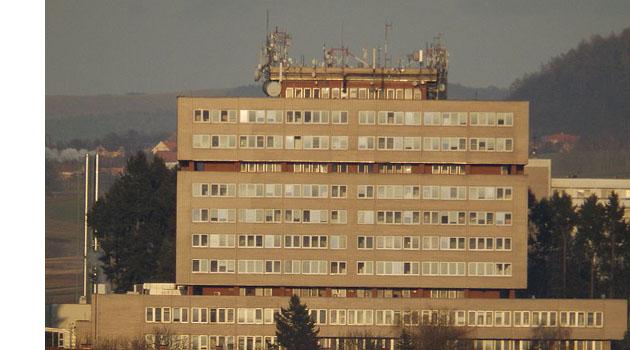Slovakia: Romani women protest discrimination in maternity hospital with a petition

In Prešov, Slovakia, Romani mothers are grappling with being discriminated against by health care staff in the obstetrics and gynecological department of a particular hospital. Romani women do not receive the same health care as Slovak women, are separated from other expectant mothers in the ward, are insulted by staff and other patients, and are not informed enough about the state of their health and the procedures of the hospital facility.
Female Romani activists from the community of Jarovnice, in collaboration with the Center for Civil and Human Rights, have decided to issue a petition to the Slovak Health Ministry. According to one of the women quoted by skyradio.sk who has not been treated the same as other expectant mothers at the maternity hospital, Romani women are not given accommodation that is kept to the same hygienic standard as that of non-Romani women, and health personnel are forcing the Romani women to sign documents they do not understand.
“We asked the nurses if they could change our sheets, and they told us that we are so dirty a clean sheet would be useless to us. We are in pain, we ask for pain pills, and they say ‘How dare you ask us for pills!’ – allegedly we are supposed to buy our own,” the Romani patient said.
Female Romani activists from the nearby municipality of Jarovnice, which has the biggest Romani community in all of Slovakia, have now begun to address this discriminatory behavior with the support of the Center for Civil and Human Rights in Košice and have decided to set up a petition addressed to Slovak Health Minister Tomáš Drucker. “The petition, called ‘Let’s stop the discrimination and humiliation of Romani women at maternity hospitals’, was initiated by female Romani activists from Jarovnice with whom we have long collaborated,” Agáta Duchoňová, a field worker with the organization, told news server Romea.cz.
“The activism by Romani women and support for it is something we at the Counseling Centre perceive as a very important component of our work,” Duchoňová added. This practice at the hospital’s ob-gyn department, as described by the female Romani activists from Jarovnice, is something the Center is monitoring in other localities throughout the Prešov Region, and the organization has long pointed out to the authorities that discrimination against Romani women in maternity wards is a persistent problem.
Humiliation, insults, neglect of care
“The female Romani activists are describing their own experiences in the petition, as well as the experiences reported by other Romani women during their stays in that ward, how the health care personnel humiliate them and insult them, how they are not provided with enough medical care either after delivering or during delivery, how they are separated from other patients into so-called Romani rooms, how they are not given enough information. The petition especially points out that during such an important event as the birth of child, all of the Romani women are being discriminated against, more or less, and their human rights are being violated,” Duchoňová said.
The female Romani activists have not just initiated the petition, but are also organizing signature collection using postcards which people are signing in their localities and neigboring ones. “As of 4 May, the electronic petition has been signed by 146 people and the female activists have collected 138 signatures in the form of postcards that will be sent to the Health Minister,” Duchoňová said.
Together with the female Romani activists, she believes “that practices like ill-treatment by health care staffers, separate Romani rooms or the humiliation and insults toward Romani women will become a thing of the past”. They are hoping that Romani women, too, will receive the same medical care and enjoy the same rights as non-Romani women.
Maternity hospital rejects complaints
The J. A. Reiman Hospital in Prešov has expressed its view of the matter to skyradio.sk and rejected all of the accusations and complaints initiated by the female Romani activists. The health care staff there allege that in their experience, female patients of Romani origin refuse to be hospitalized in the same rooms as expectant mothers who are not Romani.
“We reject their reservations about how we are maintaining hygiene. On the contrary, it is precisely the female Romani patients who have serious deficiencies when it comes to following hygienic practices,” Renáta Ceková, spokesperson for the hospital, told skyradio.sk.
As far as the documents that the staff are allegedly giving the Romani women to sign, the spokesperson said staff always inform any patient about his or her state of health and about treatment procedures. Informed consent forms in the Romanes language are reportedly available for Romani people.
